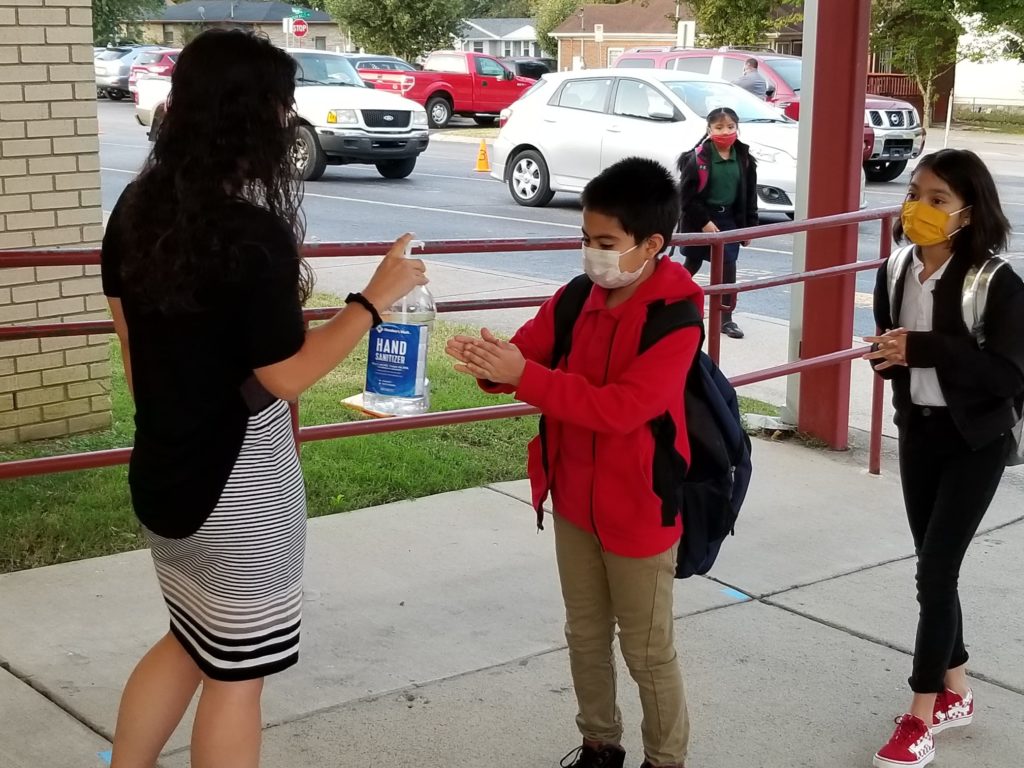
Tennessee school districts are getting a lot of money in the latest and largest federal COVID-19 relief package.
The state was allocated nearly $2.5 billion for its K-12 schools to address the pandemic-related challenges that lay ahead, and another $2.2 billion will go directly to school systems.
Metro Schools is poised to receive over $276 million of that sum to spend on services like tutoring, laptops and mental health support. Right now, the school district is finalizing a budget proposal to submit to the state for approval.
In the conversation above, WPLN’s Juliana Kim and Nina Cardona unpack some of the most common questions about the stimulus money, known as ESSER 3.0. Here are the takeaways:
Why is it called ESSER 3.0?
ESSER stands for Elementary and Secondary School Emergency Relief Fund, and it was distributed in three batches.
The main difference among the batches is that these funds were released at different points of the pandemic to serve slightly different purposes.
The first round was approved back in March 2020 as part of the CARES Act. It was aimed at supporting schools scrambling to operate after lockdown. MNPS was granted $26 million, and most of it was used to run virtual school and provide laptops and meals for students.
More: See how much each school district in Middle Tennessee received.
Then, in December, a federal supplement passed. This time, MNPS was allocated over $123 million, which was spent on services like COVID-19 testing, summer school and the personalized student dashboard.
ESSER 3.0 — from the American Rescue Plan Act of 2021 — is expected to be the final round of COVID-19 relief money. The main purpose of this fund is to reopen schools safely and support students who may have fallen behind this past year. MNPS will receive $276 million to spend by the end of June 2024.
That’s a lot of money. Does the district know how it plans to spend it?
Yes and no.
For starters, MNPS wants to invest in these four areas: expanding technology support, strengthening academics, developing staff and supporting student wellness.
There are also federal and state parameters on how the money must be spent. For instance, federal law requires that a fifth of the money has to address learning loss, with programs like tutoring. Additionally, $43 million is already set aside for charter schools.
The district also plans to give some money directly to schools to spend based on their discretion. Previously, under ESSER 2.0, the district had allocated $24 million for schools to use this school year. MNPS officials say they’re considering earmarking that same amount for two more school years.
According to officials, each school would receive a baseline of $75,000, and then an additional $450 for every economically disadvantaged student enrolled.
That being said, nothing is set in stone. The district has until Aug. 27 to send a proposal to the Tennessee Department of Education.
That’s great to hear, because my school’s parking lot could use some paving. Can the funding help pay for that?
Most likely no. Federal law mandates that the stimulus money be used to respond to pandemic-related challenges. While paving parking lots might not qualify, renovating facility ventilation systems, which could in turn prevent the spread of COVID, is eligible.
What about hiring employees? Surely, an argument could be made that more staff will be beneficial for schools with reopening.
That’s true, but schools have to keep in mind that this chunk of money is nonrecurring, unlike salaries.
The one-time nature of this fund requires careful planning so that the district doesn’t run into budget shortfalls later down the line. In other words, using the fund to hire more staff is risky, and there would have to be a plan of how to keep paying for additional staff after 2024.
I have some ideas on how this money should be spent. Who can I tell?
Perfect timing! This month, school officials will start collecting input from community members. (It’s actually a federal requirement for ESSER 3.0.)
Three virtual town halls are scheduled this week for families and community organizations to learn more about ESSER and share their thoughts. An online survey will also be open soon for people to send feedback.

